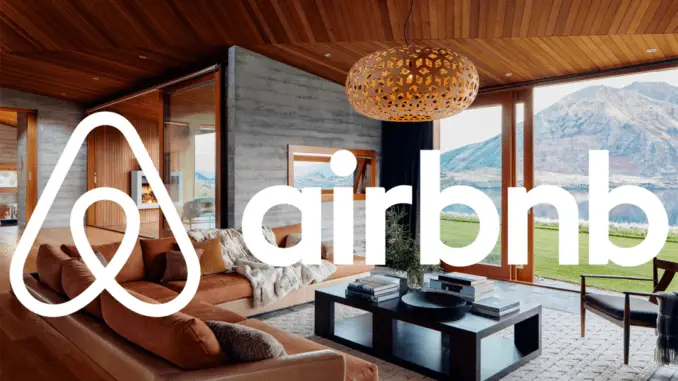Airbnb provides excellent accommodations that are more cost-effective than traditional hotels and resorts. At the same time, hosts were allowed to install camera security systems to ensure guests acted appropriately during the lease.

Despite the good intentions, many complaints arose as guests felt these recorders violated their privacy. After much pressure, Airbnb has introduced a new policy that bans indoor cameras in all Airbnbs, regardless of location.
This article will explore this new policy, breaking down the implications, some comments, and other worthwhile factors. Read on.
Airbnb’s New Ban On Indoor Cameras
On March 12, 2024, Airbnb announced on its platform that it had implemented a global ban on using security cameras inside rentals. This new approach aimed to ease guests’ fear of being privately recorded, as several videos online show hosts placing hidden cameras in inappropriate places.
Airbnb also announced this to simplify its brand policy and let users know what to expect. This factor is crucial, as guests won’t have to spend time scouting for hidden cameras or worrying they’re being recorded without their consent.
Airbnb gave hosts time to adjust to the new policy, as the announcement states that the rule change will apply on April 30, 2024.
Airbnb’s Previous Policy On Security Cameras

Before proceeding, it’s worth noting that Airbnb’s previous policy on security cameras was a topic of considerable debate. While the company permitted security cameras in common areas like hallways and living rooms, it strictly prohibited their installation in private spaces such as bedrooms and bathrooms.
This rule hinged on the hosts’ full disclosure of any surveillance devices to guests before their stay. The rationale behind allowing cameras in shared spaces was to provide security for hosts, protecting their property against potential damages or theft.
However, this raised privacy concerns among guests, who might feel their personal space was being invaded. Airbnb’s policy aimed to balance the hosts’ right to protect their property with the guests’ right to privacy.
The requirement for hosts to disclose any surveillance equipment was a critical aspect of this policy, ensuring transparency and allowing guests to make informed decisions about their accommodations.
An Exception To The Rule
Although Airbnb updated its policy, effective April 30, 2024, it continues to permit outdoor security cameras, including doorbell cameras, for hosts. These measures are in place to ensure guests’ safety and property security.
However, the policy mandates full disclosure of outdoor cameras’ presence and general location. Hosts must inform guests about these devices before bookings are confirmed.
This transparency is crucial for maintaining trust and privacy expectations within the Airbnb community. The policy prohibits indoor and outdoor cameras that could intrude on private spaces like enclosed showers or saunas.
Previous Complaints About Airbnb Indoor Cameras

The controversy surrounding Airbnb’s use of indoor cameras has been a point of contention for some time. Guests have reported discomfort upon discovering cameras in their rented spaces, leading to many complaints with the company. These grievances often highlighted feelings of intrusion and a breach of privacy, sparking debates on social media and review platforms.
In response to the backlash, Airbnb conducted surveys and found a significant portion of guests were deterred from booking properties due to concerns over indoor surveillance. This feedback was pivotal in shaping the new policy, as Airbnb sought to prioritize guest comfort and privacy.
The ban on indoor cameras is expected to enhance the guest experience, fostering a sense of security and trust in the Airbnb community. It also aligns with broader societal expectations for privacy, especially in the digital age, where surveillance technology is becoming increasingly pervasive.
Comments On The New Airbnb Policy
The Airbnb community’s reaction to the policy change on indoor cameras has been a mix of support and concern. Many guests praised the decision, expressing relief that they would have better privacy and protection during their stays. Eliminating indoor cameras is a positive step towards ensuring travelers a comfortable and secure experience.
Hosts, however, have voiced apprehensions about the potential risks to their properties. Some worry they might face increased theft or property damage without indoor surveillance.
Despite these concerns, there is an acknowledgment of the importance of guest privacy and a recognition that clear policies can help maintain trust within the Airbnb ecosystem. Ultimately, it emphasizes the need for Airbnb to continually improve its policies and strike a perfect balance of security and privacy for its community.
Repercussions For Not Complying
Hosts who fail to comply with Airbnb’s new policy banning indoor cameras may face significant repercussions. Hosts who disagree with the policy cannot continue hosting or using Airbnb.
Non-compliance could result in the removal of their listings and potentially their account from the platform. This strict enforcement ensures that all users adhere to Airbnb’s community standards, maintaining trust and safety within the network.
The rules are non-negotiable, so if guests find hidden cameras and report them to the platform, Airbnb will launch an investigation. If the results validate the complaint, Airbnb will immediately remove the listing or account.
What Guests Should Know Before Booking

Experts like Booking.com advise guests to review the host’s information thoroughly and ensure they know Airbnb’s policies. If they are uncomfortable with what they find, seeking alternative accommodations is advisable.
There’s always a risk that hosts may not reveal the presence of cameras despite the rent ban. In this case, security expert Kent Moyer recommends avoiding vacation rentals to prevent privacy breaches.
Incidents have occurred where hosts captured guests’ private moments, leading to lawsuits and likely prompting Airbnb’s policy change.
For safety, travelers can also use devices to detect hidden cameras or conduct a manual search with a flashlight, looking for the reflection of a camera lens. Safety experts recommend this proactive approach despite any assurances of no active cameras by the host.
Protecting Your Property As An Airbnb Host
Airbnb hosts can safeguard their properties without indoor cameras by using alternative security measures. The platform allows outdoor devices like doorbell cameras and noise decibel monitors to detect excessive noise levels and help prevent unauthorized parties.
These tools are privacy-conscious and effective for monitoring property security. Hosts must disclose outdoor cameras to guests before booking and ensure they don’t invade privacy by monitoring enclosed outdoor showers or saunas.
Hosts can also adopt other security practices, like securing key exchanges, vetting guests through Airbnb’s verified profiles, and setting clear house rules. They can also take pictures and record the state of their property before receiving guests, ensuring everything is intact before the travelers check out.
Conclusion
Ultimately, Airbnb’s decision to remove indoor cameras may be a step in the right direction. It will create more trust among users and make it easier to find justice when hosts record them without permission.
But what if you find a hidden camera in your Airbnb even after April 30? The best action is to document the find with pictures, send a report to Airbnb, and contact a competent lawyer like Attorney Ugo Lord for advice on what to do next.
